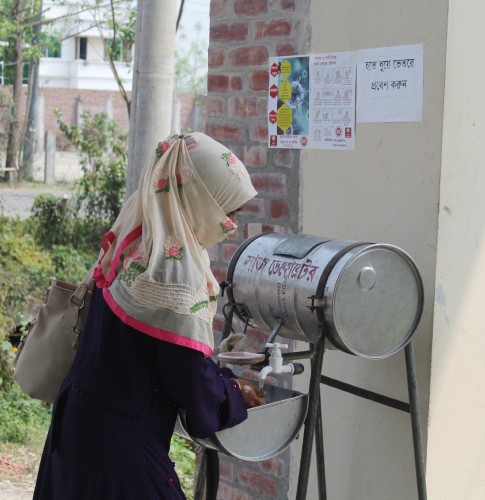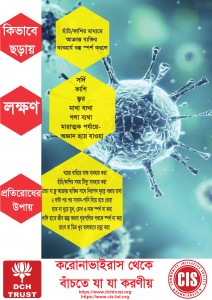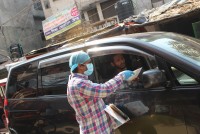【A-PAD Bangladesh】Emergency Response for COVID-19
2020.04.09
As of April 2, there were 56 confirmed cases of COVID-19 with 25 recovered patients and 6 deaths in Bangladesh.
A-PAD Bangladesh is working with partner organizations, Community Initiative Society (CIS) and Dhaka Community Hospital Trust (DCH Trust), to implement preventative measures with a focus on health and livelihood support to vulnerable populations around the country.
A-PAD Bangladesh and its partners provided food and hygiene items such as masks and hand sanitizers to disadvantaged populations including low income families and refugees. CIS and A-PAD Bangladesh also installed hand washing stations in different places including hospitals and informal settlement areas so that basic hygiene can be maintained. Personal protective equipment (PPE) have also been distributed to health care workers.
All DCH Trust sub-centers, including centers in Rohingya camps, are providing 24/7 health care services as before. 3,000 medical and NGO staff were trained on infection preventative measures. CIS is conducting social distancing awareness campaigns by distributing leaflets and setting up stand banners in different areas where many people are likely to see. Awareness campaigns were also conducted in 26 garment industries, 15 hospitals, and 150 private companies.
While social distancing and other measures are being taken globally to prevent further spread of the pandemic, Bangladesh is facing its own set of challenges in the fight against the virus.
The country is densely populated and many of the people live below the poverty level. Daily wage earners such as rickshaw pullers, small shop owners, and street vendors are some of the most affected amidst the pandemic. Since the nationwide shutdown was enforced on March 26, daily wage earners became unable to earn wages and buy basic necessities for themselves and their family members. Refugee camps in Cox’s Bazar also face heightened risk with unhygienic overcrowded living conditions.









